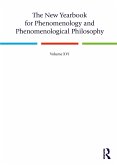This thesis examines the little-known phenomenological ethical theory of Max Scheler, discussed in his Formalism in Ethics and Non-Formal Ethics of Values and The Nature of Sympathy, also bringing in various other complementary philosophers. It argues that Scheler's theory, when supplemented with complementary ideas, is superior to those offered by contemporary analytic intuitionism and other meta-ethical theories. It argues that a theory of pluralist emotive intuitionism provides a better description of both our experience of ethical value and the logical requirements for the ethical knowledge presumed by that experience. This thesis places Scheler's theory in the context of ethical intuitionism up until the present. It considers why intuitionism has been generally rejected, looking at outstanding philosophical questions facing ethical intuitionism and previous attempted answers, and discussing current theories of analytic ethical intuitionism and their flaws. It explains the significant elements of Scheler's ethical theory and how it can be understood in its phenomenological context. To demonstrate how Scheler's material intuitionism is better than current theories of rationalist intuitionism, and other meta-ethical alternatives, this thesis looks at two main groups of issues. Firstly, the epistemological issues raised by Scheler's theory and how it offers a possible solution to the problem of ethical knowledge, along with a brief consideration of ontological issues. Secondly, normative issues raised by Scheler's theory: major issues on normative judgement raised but not answered by Scheler's theory and, following this, a chapter dedicated to Scheler's theory of 'persons', particularly with reference to Emmanuel Levinas.




![Rules for Holy Living, With Questions for Self-examination [microform]: a Companion for the Pocket Testament or Prayer-book Rules for Holy Living, With Questions for Self-examination [microform]: a Companion for the Pocket Testament or Prayer-book](https://bilder.buecher.de/produkte/65/65556/65556416m.jpg)


